
View from the Hill 14th October 2019
Thank goodness these guys turned up when they did, on 18th September. The sun was shining, and the ground was bone dry, remember that? Nought but a distant and wistful memory now, we have had 261mm (10.5 inches) of rain since then, which has completely scuppered our autumn crop sowing plans. These tractors plus another 3 were here for just over one day to haul back this year’s silage from Thornicombe, the maize was barely fit, but if we hadn’t cut it then it would still be in the field now as it started raining in earnest 3 days later. Many thousands of acres of maize remain to be cut all across Dorset, the weather has hardly given anyone a chance to do anything. Venture into many fields with heavy machines and they would sink out of site after the deluges we have had. Nick Bragg’s team left us with a well sheeted silage heap, which exudes the sweet aroma of making silage, and they will be back to haul it away to the digester before christmas, bringing us some lovely digestate ready for next spring’s crops on the return journey.
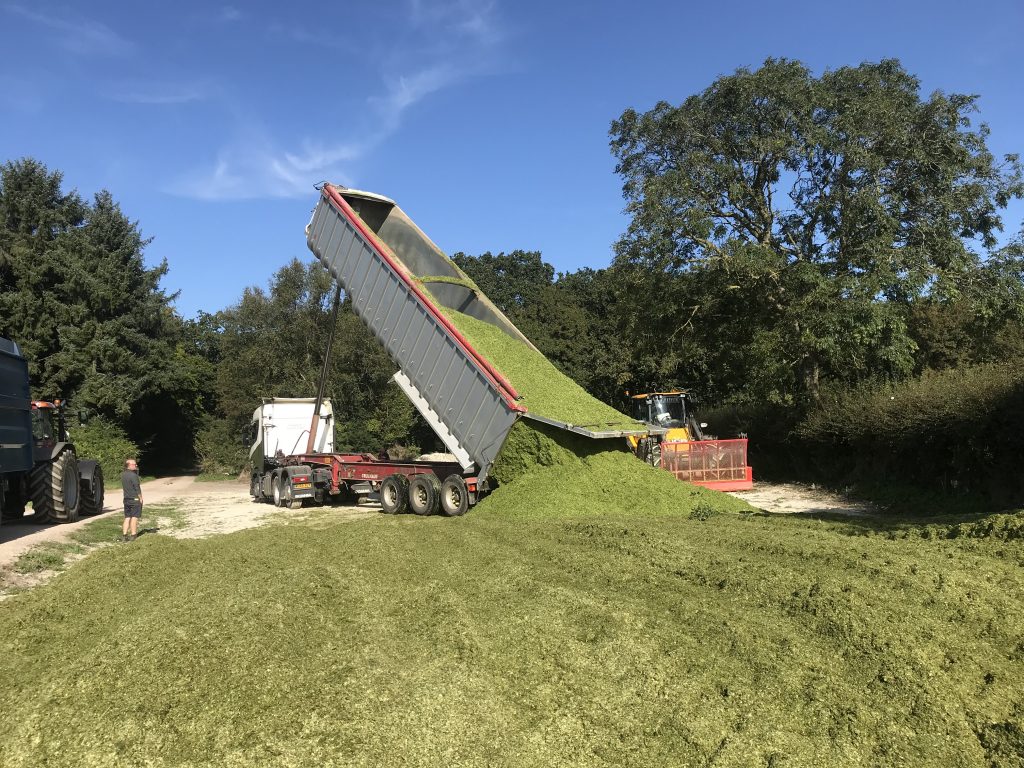
As for our autumn sowing campaign, all the seed is still sitting in the shed as I write, with another week of wet weather forecast, the days are getting shorter and cooler, the prospects are not very good. Barley doesn’t like late sowing, wheat can cope better, but we still need the soil to dry out before we can do anything. For every year as long as I can remember we have started sowing between the 20th and 25th of September, and have been known to finish by 2nd Oct in some years recently. The last grim year was 2012 when we were still scrabbling around in mud on 9th November, with a lot of wheat planted around the 24th Oct, which amazingly yielded reasonably well, but the November sown wheat was terrible.
An indication of how dry the silage fields were is given by the fact that amongst the team of tractors there was an artic lorry, which was able to drive behind the forage harvester in the field and collect the maize, this is very uncommon.
Rather than dwell further on the bad news, let us look at what is growing in the fields now, some we prepared earlier so to speak. The cover crops we sowed before, during, and after harvest are a bit of a mixed bag, and we have plenty of turnips, if somewhat patchy due to the long dry period in August.
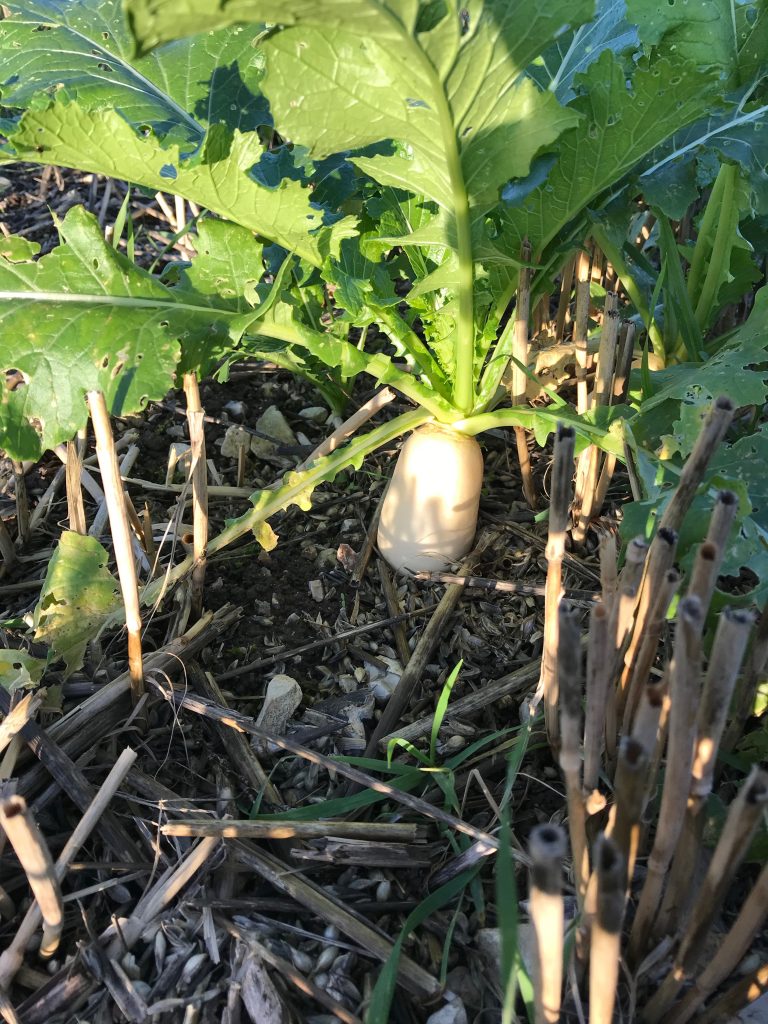
A cover crop below making good progress after wheat, consisting of phacelia, linseed and clover.
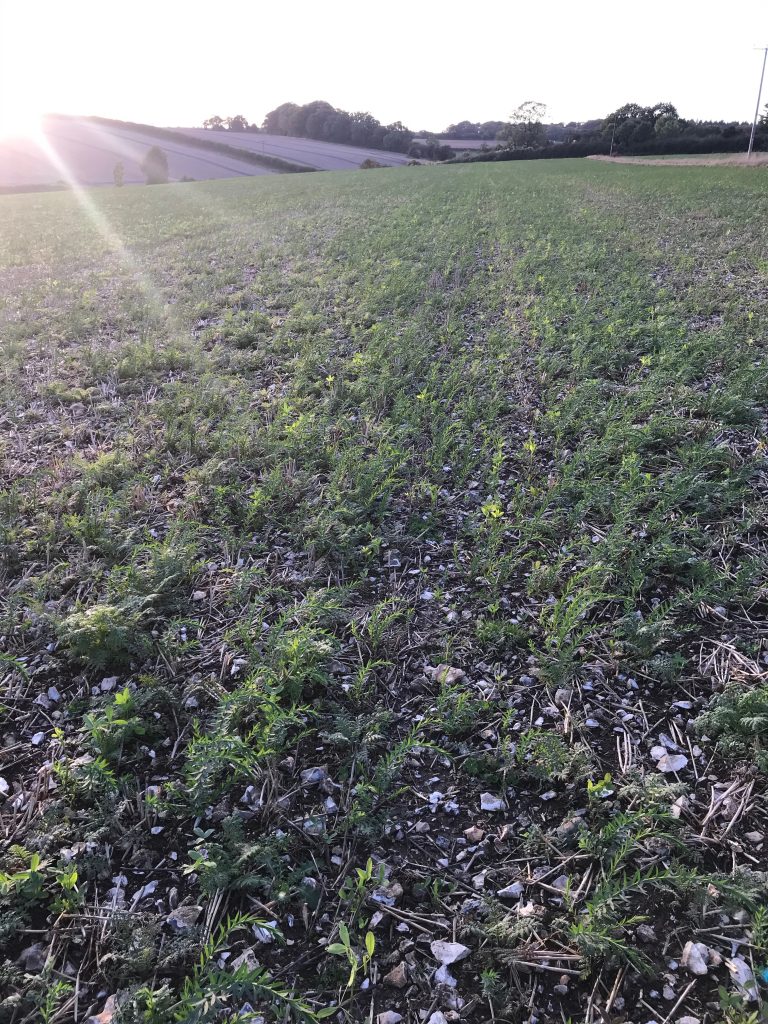
Watching the rape has been very stressful, as we pray for it to withstand the onslaught of the cabbage stem flea beetle. Much of it is well away and now looking great, but there are still patches where the plants haven’t quite made it to safety yet. The beetles have been persistent, coming in waves of infestation, and many later sown crops on other farms have not made it. Our early sowing strategy seems to have largely paid off, we will see. We have managed to resist the temptation to apply any insecticide, we are told that a proportion of the beetles are resistant to insecticide anyway, so our hope is that by not using any chemical, we will encourage predator species numbers to build up and eat the beetles, even if there is no sign of this so far. Our Agronomist Greg was here on Friday and seemed a little too pleased to point out that we are also suffering from Cabbage root fly, a pest we have not seen here before. It eats the roots of brassica plants, which then slowly die if they can’t grow new roots fast enough to compensate. I fear rape may be on its way out. Sadly there are precious few reliable crops to replace it with for sensible rotational farming.
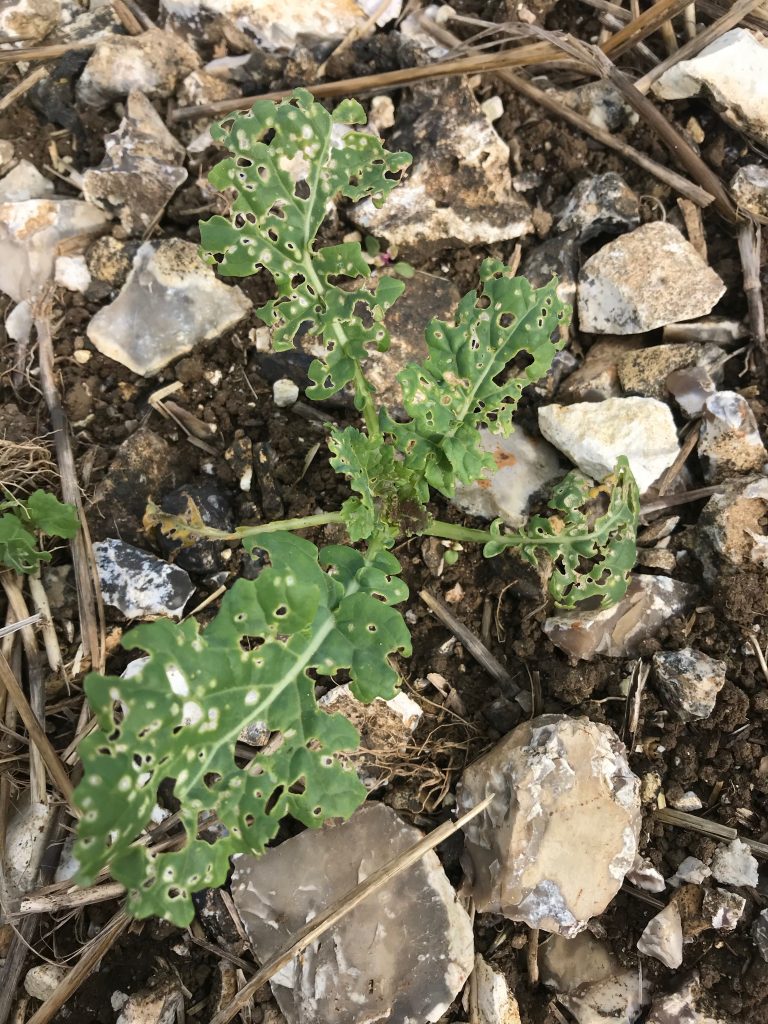
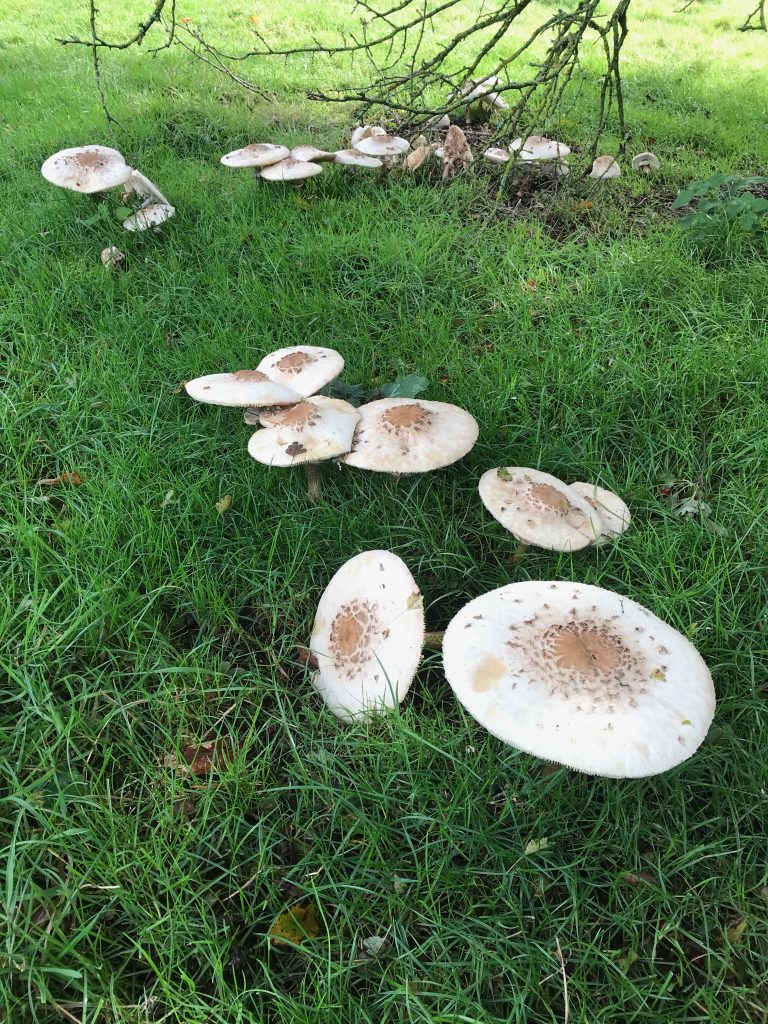
The weather might not be so good for arable farming right now, but at least the grass is still growing and the animals have plenty to eat, there is also a fabulous amount of autumnal food about in the hedges and woods. Fungi anyone?
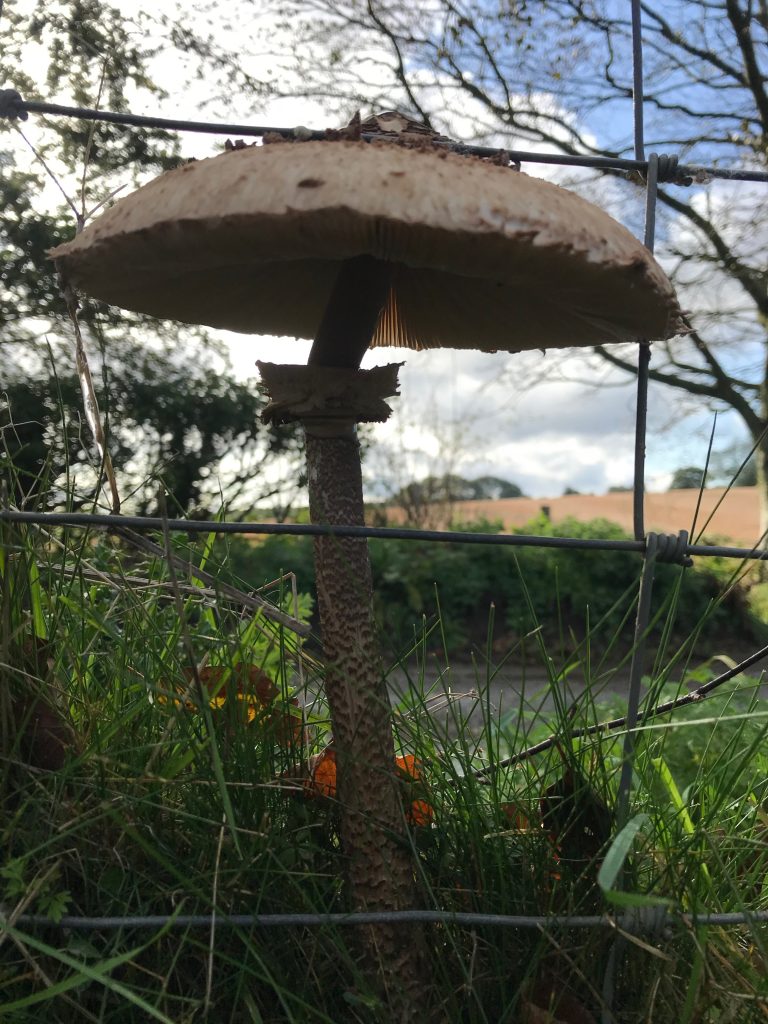
A spindle bush laden with its exotic fruits, it clearly escaped the ravishes of the spindle moth caterpillar back in the summer. My pitch fork raving must have done some good.
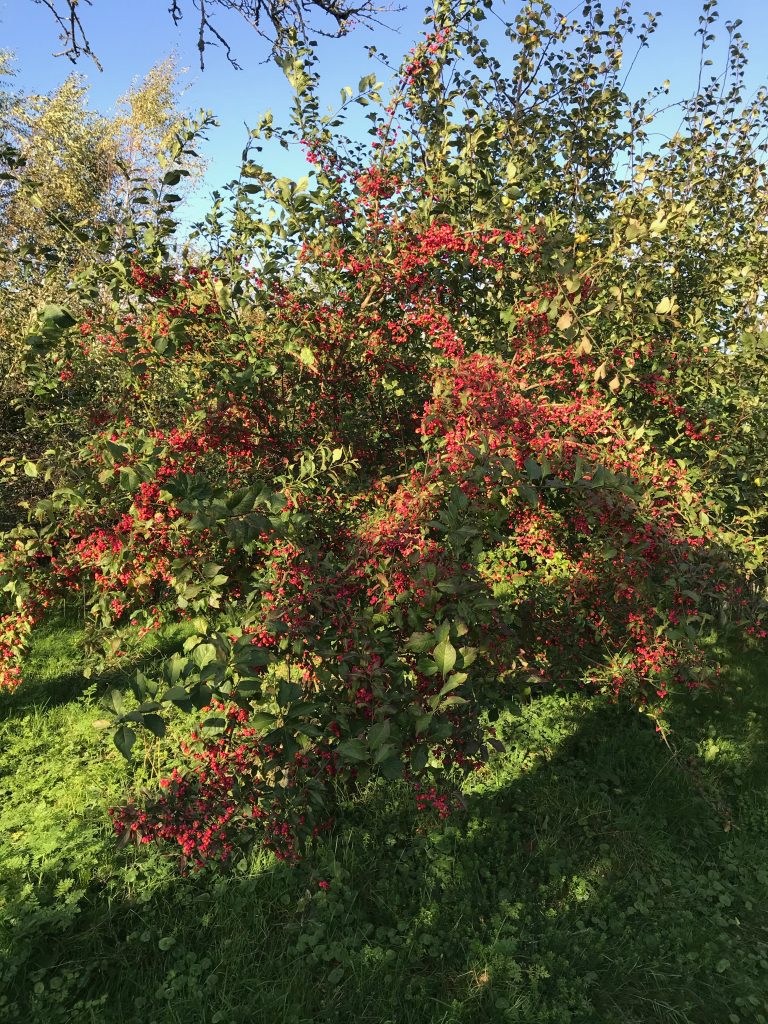
The fruits are not recommended for human consumption due to, amongst other things, their laxative effect.
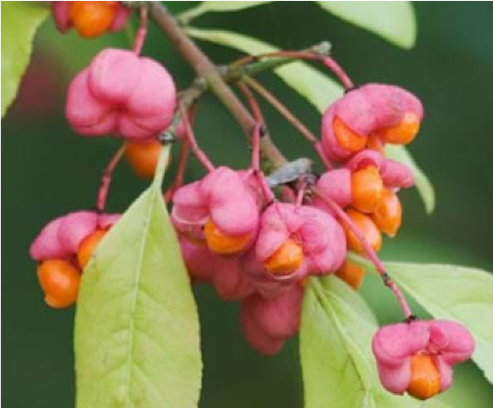
The cows and calves munching peacefully in the valley behind Durweston, on a sunny Sunday afternoon after an epically wet and miserable Saturday.
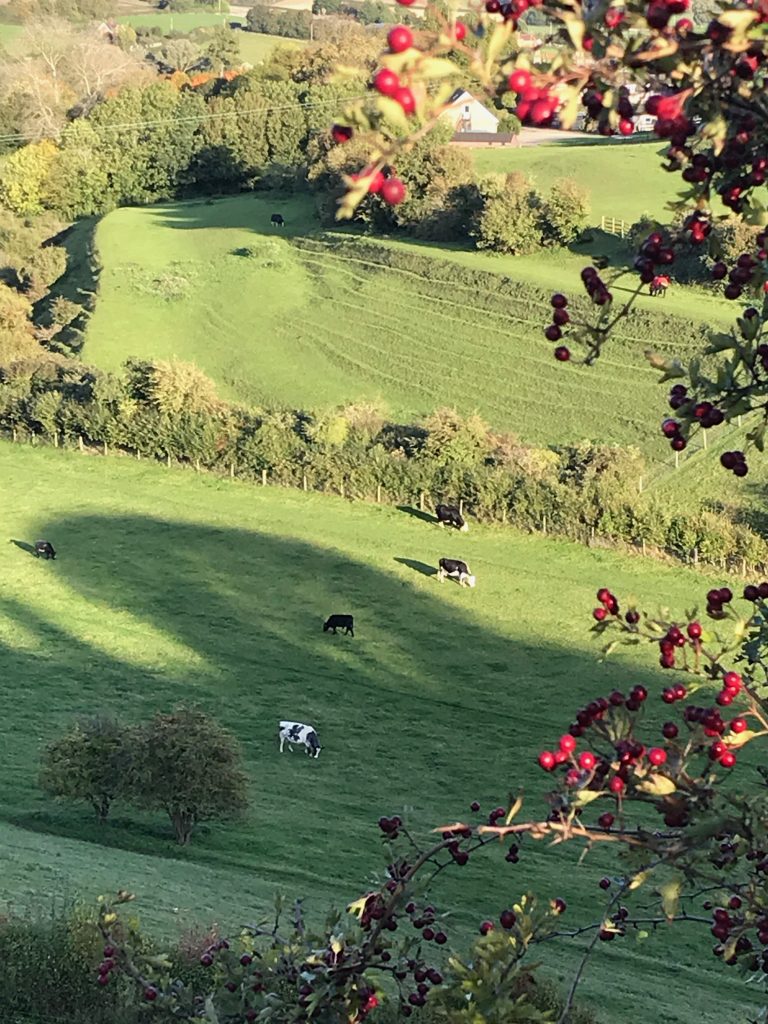
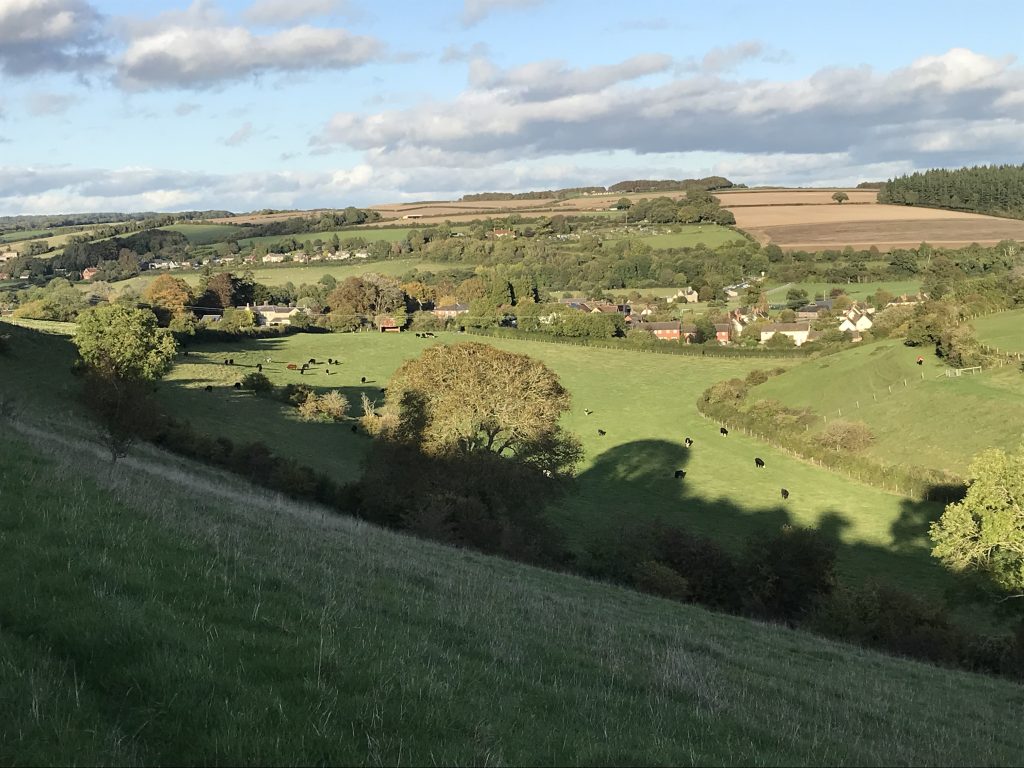
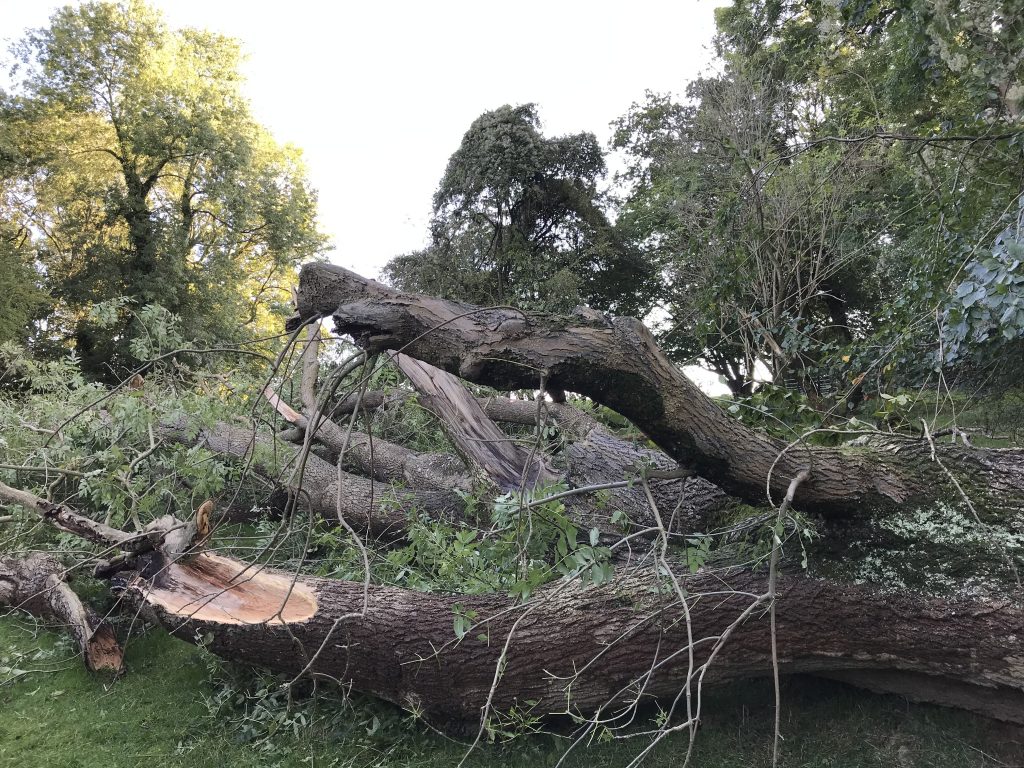
The gales of the last few weeks have brought down two fine old Ash trees on the farm, and a number of other smaller trees. When you inspect the base of the trunk of this one you realise it is a wonder it stayed upright as long as it did. The lesson from this is that you should not linger under trees during windy weather. This tree had hardly any healthy wood holding it up.
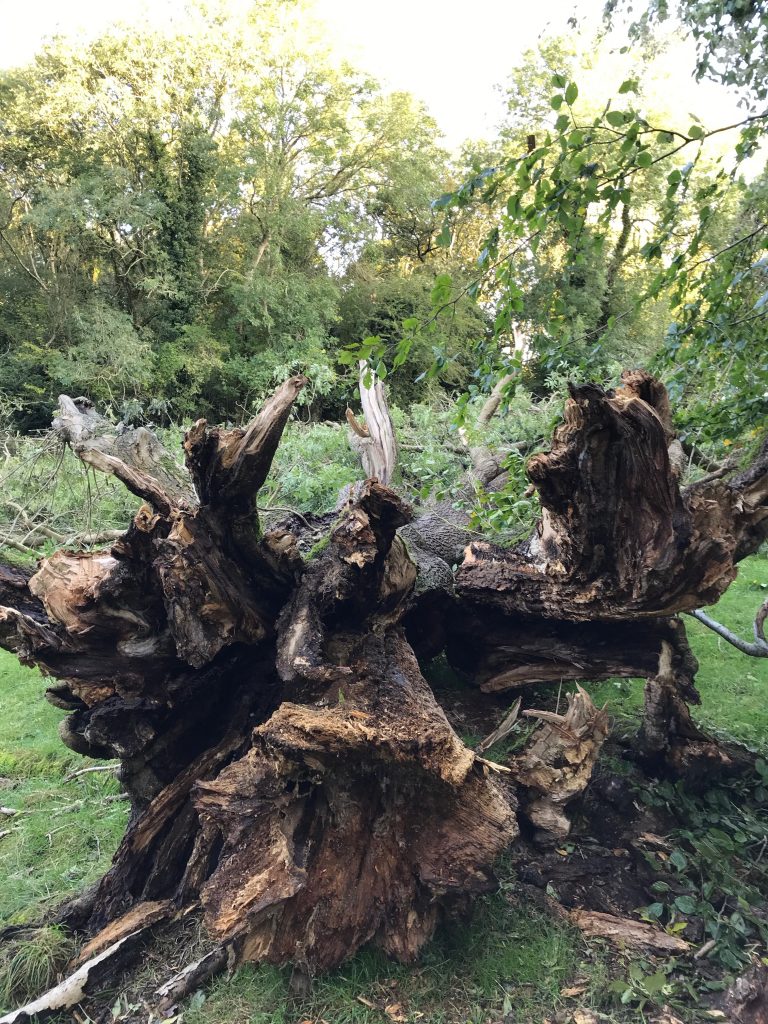
We can’t blame this on Ash die-back disease, although we have many hedgerow ash around the farm which are clearly suffering from this entirely avoidable disease. It is a national tragedy, and a complete scandal. Why on earth were people importing ash seedlings into the UK, which is how the disease reached our shores, when ash is so easy to propagate and grow here?
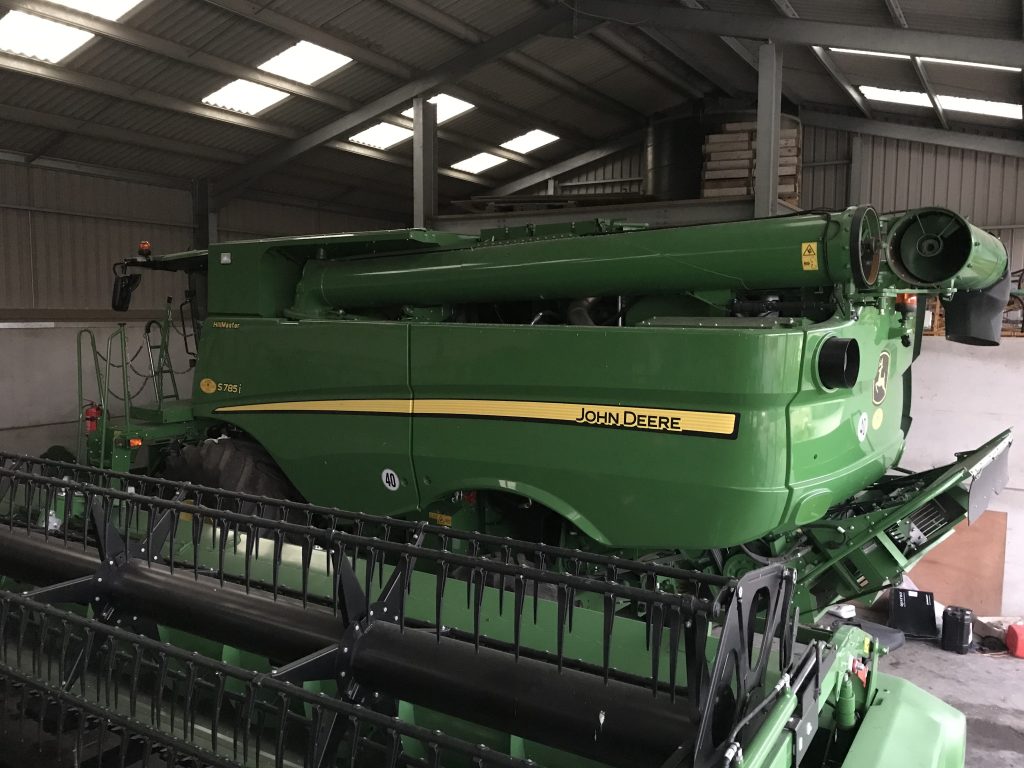
This little baby seems to have snuck its way into our shed since harvest. More perceptive readers of the View may not be all that surprised after reading recent episodes. Our friendly John Deere dealer Colin Smart and his team buttered us up with two separate visits of their demonstrator machine this summer, and after much head scratching and number crunching, we decided it was time for our old machine, which has just completed its 13th season here, to move on to pastures new. The sums revolve around the price, the amount of discount, the value of the old machine as a trade in, and the estimate of repairs needed as the older machine gets even older. Don’t ask how much. It was sad to see the old machine trundle out of the yard for the last time, she had given us great service, and we hope she goes to a good home!
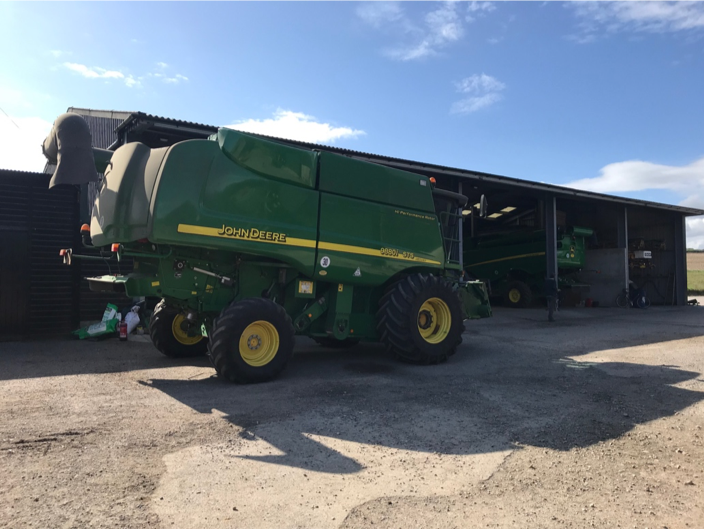
There she goes, still looking shiny, 13 years young.

It’s not nonsense George, I look forward to reading it every month. My heart goes out to you with your drilling problems. Can you compensate with more spring crops?
First time I have read your newsletter George. Gripping stuff. Thank you!